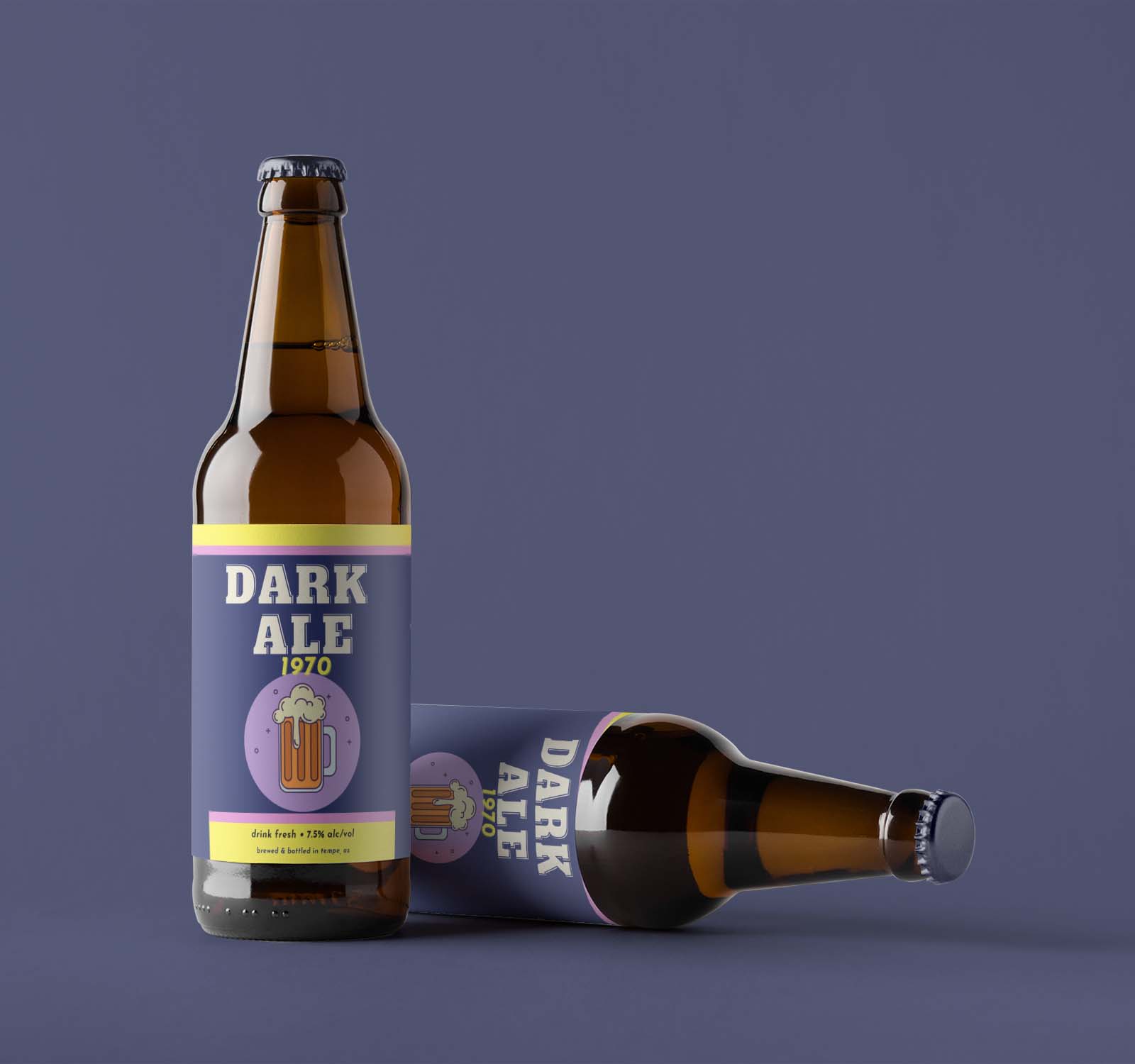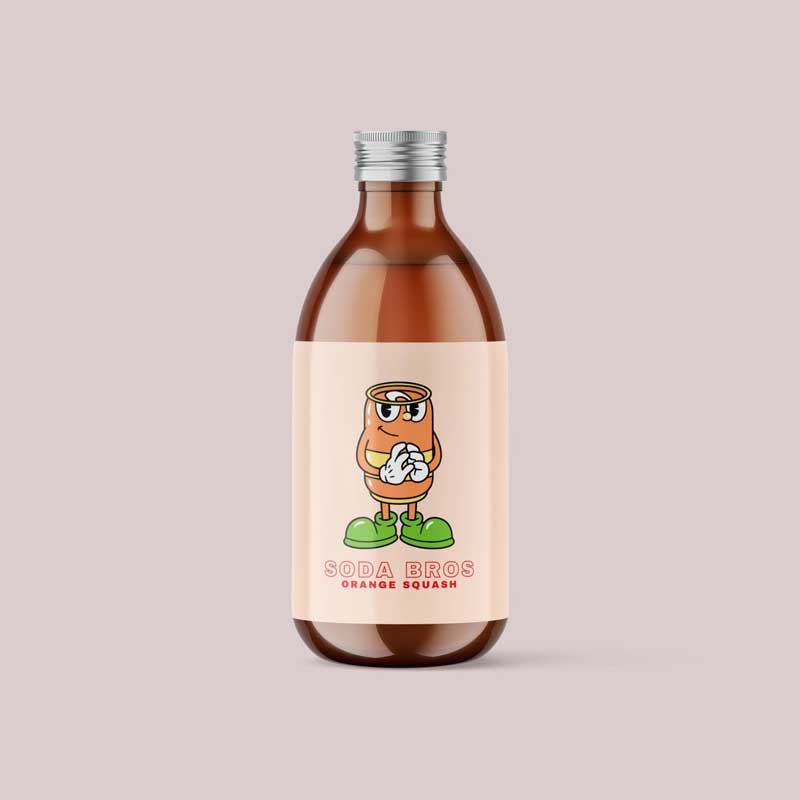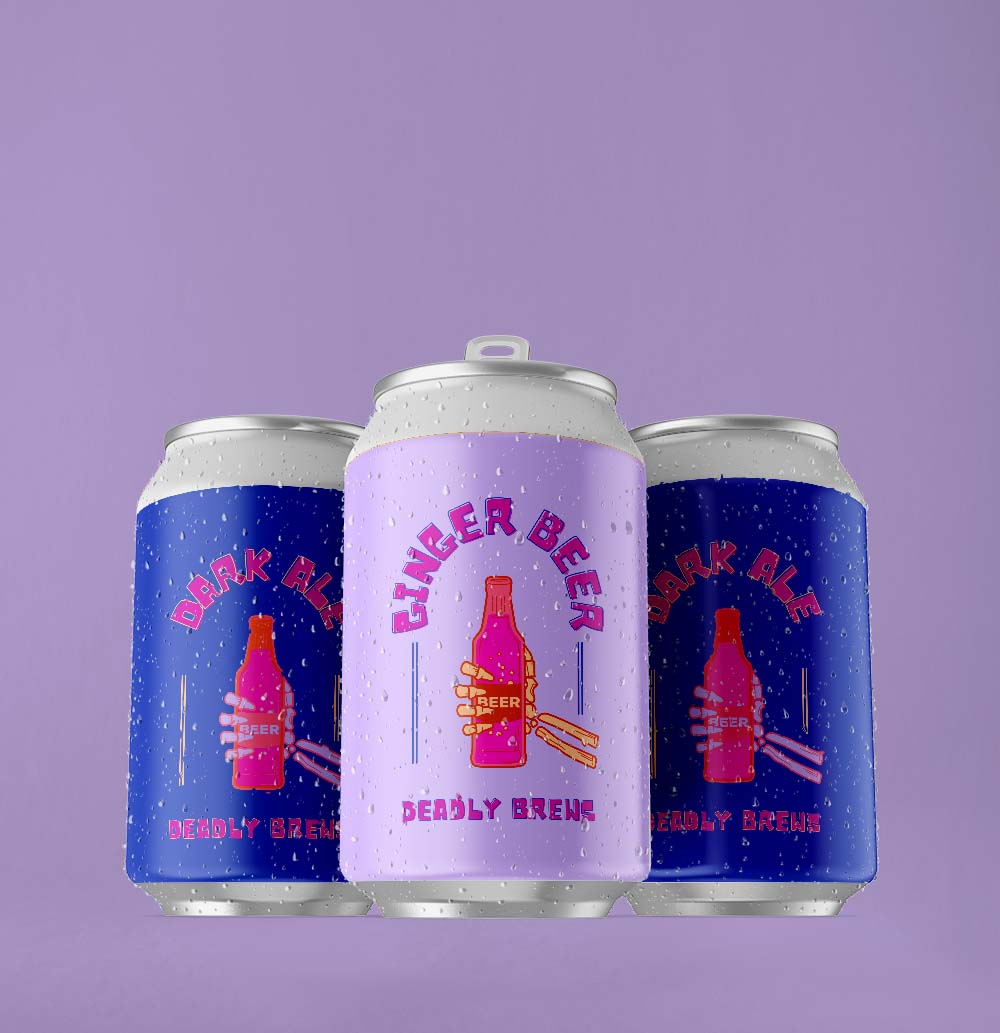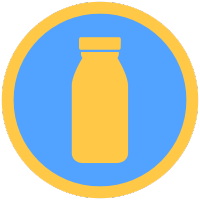You’ve made a crafty beer or brilliant beverage and are ready to roll it out for the world to enjoy. Congratulations! Now, to the next crucial product component: the bottle label!
There are a couple of popular options for beverage and beer bottle label materials, namely Polypropylene and Vinyl. But which of these two synthetic labels is best for your bottle – and why?
Today, we tackle this question and offer a comprehensive comparison of Polypropylene vs Vinyl Labels for drink bottles, helping you decide which type sits best on your product.
Most drinks and craft beer labels you see on bottles today are made from one of two materials - Polypropylene or Vinyl.



Polypropylene is a synthetic material used in all kinds of products, from toys to textiles, yet it’s most commonly used in packaging. It is often preferred for applications needing durable, versatile and water-resistant labels, like in product packaging and bottle labelling. Polypropylene labels can be tailored to withstand various environmental conditions, making them a popular choice for both indoor and outdoor labelling needs.
Another synthetic, labels made from vinyl also find themselves a firm favourite in product packaging and signage due to their waterproof nature. These labels are popular for applications where a thicker and more robust label is desired. Vinyl also adheres well to a number of surfaces, including glass, and can withstand outdoor conditions.
With polypropylene and vinyl labels similar in many ways, you might be wondering which is best for your beverage.
Let’s explore some key considerations when choosing a drinks product label to help you choose the optimum one for your circumstances.
Polypropylene labels are generally thinner than their vinyl counterparts. The reduced thickness of polypropylene contributes to a more lightweight and flexible labelling solution, allowing for easier application on curved surfaces like bottles.
In contrast, vinyl labels tend to be thicker, providing a feel some manufacturers believe is sturdier. This makes them suitable for applications where a more robust and tactile label presence is desired.
If you want versatile formatting, polypropylene labels are a great option. You can create labels in various shapes and sizes to accommodate different bottle designs, and the flexibility of polypropylene makes it well-suited for intricate or custom-shaped bottles, too, providing adaptability in label design.
On the other hand, vinyl labels may have limitations in terms of flexibility and, as such, are better suited for standard bottle shapes due to their thicker and less pliable nature.
Polypropylene labels are renowned for their high-quality characteristics, boasting durability, tear and water-resistant properties. These labels are particularly suitable for applications requiring long-lasting, resilient labels that can withstand various environmental conditions.
Vinyl labels also offer excellent quality, featuring durability and waterproofing, although they may be slightly more prone to tearing in certain circumstances.
Since bottles come in all shapes and sizes, manufacturers often require adaptability with their labels. Polypropylene labels emerge as a highly suitable choice for bottle labelling due to their flexibility, moisture resistance, and overall durability.
Vinyl labels, while also suitable for some bottle labelling, can be less flexible. This often finds them better suited for applications where a thicker label is preferred.
Beverages and beer bottles are as much about looking the part as they are about taste. When it comes to printing, polypropylene labels are highly flexible, accommodating various methods such as digital and flexographic printing and allowing for vibrant and intricate designs.
Vinyl labels also support multiple printing methods, but the thickness of vinyl may influence compatibility with certain printing technologies.
Another great property of polypropylene labels is their diverse adhesive options, ensuring strong and reliable bonding to various surfaces - including bottles. Any applications requiring secure and long-lasting adherence will find polypropylene a highly suitable label option.
Vinyl labels also possess robust adhesive characteristics, but some materials will accept the adhesive better than others. Therefore, it’s necessary to consider the bottle material carefully to ensure optimal bonding – or you may need to rethink this option for your drink packaging.
Drink bottles find themselves in various storage environments with a broad temperature range. The versatile nature of Polypropylene labels makes them suitable for a variety of storage conditions, including environments with fluctuating temperatures.
In contrast, vinyl labels may have specific temperature limitations, and cool conditions can impact their performance, quality and aesthetics. Think about the optimum storage temperature for your bottles before committing to vinyl labels.
Polypropylene labels for bottle labelling offer a range of appearance options, with choices between glossy or matte finishes. This flexibility allows customisation to achieve different visual aesthetics on the labelled bottles.
Vinyl labels typically feature a glossy finish, contributing to a shiny appearance that may be desired for certain branding or packaging preferences but not for others. Whether this works for you depends on the desired aesthetic and branding.
If your values include sustainability, polypropylene labels are a good choice thanks to their environmentally friendly nature. These types of labels are recyclable, contributing to a reduced environmental impact.
On the other hand, vinyl labels may have a higher environmental impact due to the production process. There are also potential challenges when it comes to recycling vinyl labels.
Polypropylene labels for bottle labelling are often a cost-effective choice, especially for large-volume printing, as they tend to be thinner than vinyl labels. The reduced thickness contributes to lower material costs and can result in overall cost savings for labelling projects with high quantities.
Vinyl labels are typically thicker, which can incur higher material costs, making them relatively more expensive, particularly in large-volume print runs.
So, which is your ideal choice for craft beers and beverages? Here’s a quick summary:

Our labels are lightweight and flexible, ensuring a perfect fit for any bottle shape.

Enjoy water-resistant and durable labels that withstand the rigors of the beverage industry.

Choose eco-friendly and recyclable labels for a sustainable and responsible packaging solution.
Polypropylene labels are lightweight, flexible, printable, water resistant, adhesive, excellent in all temperatures and can be cut into all kinds of shapes and sizes. They’re also recyclable, making them a great choice for green-conscious manufacturers. In summary, choose polypropylene and you’ll receive sleek, durable, high-quality labels that are kind to the planet AND inexpensive.

Our labels are robust and waterproof, providing ultimate protection for your product.

Ideal for standard bottle shapes, thses labels offer limited flexibility for a perfect fit.

Achieve a shiny appearance with our labels that can offer a glossy finish.
Vinyl provides a robust, waterproof label although it’s much less flexible and likely to damage in certain temperatures. While you can print to vinyl, not all techniques will work effectively, impacting the final quality and aesthetics of the label. They’re also less kind when it comes to sustainability due to their intense production processes.
Innovative, experienced, and committed to quality, every LabEX product label is a durable, compliant, and aesthetically resonant brand champion.
Invest in the best.